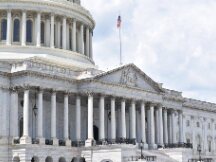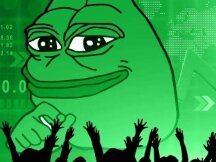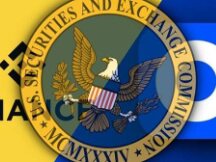The rise of the Web3: 10 ways to move from the geopolitical era to the tech-political era
Technology is changing the physical world.
In two recent articles, political scientist Ian Bremmer believed tech companies would change the world order, while "Foreign Policy" author Stephen Walt voted against the United States to remain the leader. We take our thinking for granted. Technology has not only changed the world order, it has also changed the nature of businesses and the country themselves. The 21st century is not for China or America, not for tech companies in the traditional sense. It belongs to the Internet.
There are many reasons for this, the most important of which will be the increase in regulatory processes that are not regulated by countries or companies like Bitcoin and Ethereum. It was to his credit that Bremer spoke of them, but he still couldn't estimate their importance. He and Walter spoke about the weaknesses of many tech companies around the world. They are typically registered in the United States or China and rely on those rulings to enforce their treaties, have no state law, and have crypto procedures that enable efforts to protect assets and manage contracts at statewide. The borders have been widened to deal with serious international conflicts.
But the tech challenge for local regulations has always been when it started transforming the physical world through crypto processes, tech companies, and even the digital space itself. Here are 10 ways to go from a geopolitical era to a tech-political era.
The network connection is now similar to the physical zone.
The traditional policies of the Mackinder School District governed the continued application of the laws of the region. At the same time, Russia and Japan may have different religions, but the geographic area remains the same. At least that's the argument.
But the Internet adds something new to this. It is not just a cutting edge and competitive passive information layer, but a new kind of geography in relation to the physical world. Think of it as Digital Atlantis (the new nation floating in the clouds, where old energy competes and new energy emerges). The unit of distance between two people in the air is not the time to walk their earthly career, but the degree of separation between them in a relationship.
This means that anyone can stay away from others by following them on social media or blocking their account on the same network. No plane ticket required. Each of these live floats can attempt to interfere with other organizations by pinging the IP address to complete everything from business to network access. No login is required.
Every citizen of the Old World can work this far away from the screen as long as they have internet access and spend hours in the cloud, as millions of people usually do. They can become new people without real immigration. Public. The encryption technology is the same as the Weather Defense system, allowing all users to protect their digital devices without physical force and without the use of ammunition.
Conclusion: The similarities in the internet are now comparable to the physical realm, and the geographic perception in the realm of civilization, immigration, use of electricity and social effort needs to be reconsidered in the digital world .
Domestic profits will face competition from digital currency
Think about what happened to the newspaper. First of all, all the newsletters have been put online. Then they were all sorted by Google News. Finally, the local newspapers found that the monopoly zone was gone because they did not have to distribute the newspaper itself by truck.
The national currency will suffer a similar fate. National currencies compete with cryptocurrencies as individuals and institutions have digital wallets filled with different assets that can be traded with each other. The introduction of central bank digital currency (CBDC) will be rapid. All assets are exchanged for all other devices, including the CBDC itself, on a large board called “DeFi Matrix”.
In this age of global profit competition, national rewards have to happen in a person's bag every hour and every day, even between individuals. The digital model of the Yen will compete directly with the Swiss Franc, the Brazilian Real and other open currency assets (like Bitcoin). Anyone can still be a forex trader, and everyone can only have the best local currencies or cryptocurrencies.
Unlike the current environment of runaway inflation and competitive devaluation, the DeFi Matrix imposes new disciplines on national currencies based on billions of people making their own choices about the money they buy or won't hold.
Distance marketing creates business intelligence for the public.
Walter argued that the state might control them in the end because state supporters didn't have the technology to still have the technology somewhere. But in the competitive market for orders, no government is as strong as you think.
Estonia, New Zealand, Singapore, Taiwan, Portugal, United Arab Emirates and Chile all compete for new mobile technologies through “nomadic visas” and other similar services. After all, many aspects of life (such as email, education, and e-commerce) are already in the cloud, and many other factors (such as financial and foreign businesses) have been digitized. The government is what financial analyst Mancourt Olsen calls "stealing property" and changing rents for profit.
But as long as people can afford it or can afford to leave, they have many options when it comes to choosing a welcoming country. Ask 9 million Americans around the world. This number has doubled over the past decade.
Bit finally rebuilt the atom.
Ten years ago, entrepreneur Peter Thiel, developer J. Storrs Hall, and financial scientist Tyler Cowen argued with difficulty that physical devices malfunctioned when technology developed. But when you think of salvaging drones, robots, motorists, brain computers, vaccination passports, gene therapy tools like CRISPR and drug defense mRNA, and nuclear power, spacecraft and supersonic planes, Earth's body is finally discovered. The renewal of innovation. When something is done online, you can print anywhere and measure faster.
This is why Walter's claim that states must regulate their "physical environment" (a concept called "geographic area") is false. Governments that do not understand the numbers will not be able to control their physical environment. Countries with less capacity will try to control the new technology of the body against inefficiency and resistance to control, and countries with less capacity will adopt it.
In other words, it is myopic to think that technology will remain in the digital realm indefinitely. States must reaffirm themselves as masters of new technologies and new systems. Otherwise you will fall behind and see the best citizens instead of deciding who does.
Cloud-based regulators outperform state-based regulators
Taxi managers can still perform external inspections of gift holders. However, they do not support drivers like Uber, Lyft, Grab, Gojek, and Didi. In other words, they use GPS to track all seasons, make sure drivers and passengers can complete the operation, shut down the two-star rating system, and use all devices.
In fact, these tech companies today are much older than the models of the 20th century. Therefore, the current law to push back the cycle of 21st century economic integration in the field of labor to the 20th century would be a good example. century.
However, this can become a precaution.
First, in critical situations, these companies reach the goal faster. For example, GoTo Group, the parent company of Gojek Transportation, contributes over 2% of Indonesia's GDP of over $ 1,000 billion today, creating millions of jobs and bringing in nearly $ 2 billion annually. in the taxable economy. This gave Gojek huge public support.
Second, these companies are not permanent entities and may be excluded from contracts that provide benefits to consumers. From a political point of view, the pro-democracy movement can only be weakened and incompatible with the new rules. Because application staff did not benefit as much from the increase in market share as application developers. This is an example of a class action lawsuit. .
The next step, however, is the deployment of the entire Web3-based online marketplace, and sharing activity, achieved through peer-to-peer cryptocurrency exchanges (referred to as decentralized exchanges). . At the same time, new information on cross-border regulations (users have the right to request and the operation of the platform) will be extended from cryptocurrencies to peer-to-peer trading of other products and services.
Why? Because the United States Food and Drug Administration was designed to oversee Merck and Pfizer, not a million biohackers, the Federal Aviation Administration was designed to oversee Boeing and Airbus, not a million drone enthusiasts. Goldman Sachs and Morgan Stanley, not a million Web3 developers. The people who run these organizations often occupy positions of excellence, are not independently elected, and are not easily fired. As a result, they confuse the citizens for whom they are applying.
In contrast, crypto processes allow millions of people involved in the market (including consumers and developers) to develop management systems, avoiding risking the fate of national governments and autonomous organizations. It is only a matter of time before pre-cloud sites are able to regulate the non-cryptocurrency market. Essentially, these organizations would be real-world and cross-border, unlike those governed by a country now restricted to territory.
Real estate laws have become cryptocurrencies
The idea of a state as the legal guardian of property dates back at least to scholars Thomas Hobbes and John Locke. However, cryptocurrencies oppose this notion because they have created digital assets recognized abroad. It's technically intimidating to explain all the reasons why this happens, but to put it simply, there is no harm in solving some math problems, especially those designed by security encryption.
When wealth becomes law, our whole way of thinking will change. Soviet President Stalin said: "How many Pope's organizations are there? But in the age of encryption, the question is not how many state departments should protect its devices, but how long it would take, yes. How to catch you. .
International law has become the model
After three years of bombings, terrorism, punishment and censorship, the United States can no longer recognize that it is a just judge of the rule of law under international law. Obviously, such a rule obviously does not apply to itself. Of course, no other force majeure can claim to be in charge of the law in a natural way.
However, the lens itself is desirable. Small countries prefer an order rather than a side with a larger country (the United States) that only provides international law and a larger country that does not.
For that reason, at least in the industry, I think they will rely on what we call the “rule of law”. Whether they're Democrats or Republicans, Chinese or American, Bitcoin and Ethereum are the same for everyone and everyone is treated the same. Smart devices initiate non-fungible tokens and embed them in a blockchain list, thereby clarifying legal processes.
The rules themselves can be digitized by a Geographic Information System (GIS) map and land register (real estate measurement and allocation), removing bureaucratic opacity like predatory governments. Instead of exposing themselves to risk, investors can expect the government to place products in smart contracts, which can be destroyed when they are not operational.
Even though we are still in their infancy, the application of international law, at least in terms of international trade, may become different with the contract. In addition to commercialization, crypto protocols offer transit protection for civil liberties such as free speech and privacy. While that's not all the law protects, ensuring freedom of speech and the ability to make business accessible to anyone with an Internet connection is a step in the right direction.
Web3 solves global disparities by sharing rewards and risks
Although academics and professors Hans Rosling et al have noted how much global conflicts have been reduced, the issue remains a hot topic in Western countries, even other countries (especially in Asia) have increased and profits have increased. have falled.
Perhaps the most effective way to solve this problem is the Web3 protocol. This can be viewed as a global income gap, which distributes the rewards and risks of developing high-tech services to millions of members. In other words, it would be even more encouraging if Alphabet, Meta, Apple, Amazon, and Microsoft distributed $ 5,000 billion in total business value to 1 billion users and gave them roughly $ 5,000 each.
Most of the funding for the Web3 protocol does not come from mature tech companies. Bitcoin is coded by an anonymous developer who does not accept venture capital. Ethereum was developed by a college that started investing online. And with the rise of financial management, there are now more and more variations of financial management that allow the less fortunate to seek out smart people with money to build devices that allow everyone to earn money. 'silver. This is how Web3 takes action against religious beliefs or decisions that cannot be made.
Businesses, cities, economies, communities and nations have become partners.
I think books, music, and movies are completely different. Then they all mark based on data published on the internet. Likewise, today we think that products, contracts, gold, loans and art are different. However, all of this is represented by blockchain debits and credits.
We need to start thinking about writing by people, such as community, city, company or country, based on different levels of integration that are not limited to the region but consistent in a change constant. For example, a government agency can integrate a digital network and a business can implement a blockchain application for a city-state.
Bitcoin City in El Salvador, the rights of the Decentralized Autonomous Organization (DAO) in Wyoming, and projects funded by funds such as MiamiCoin and NYCCoin are all signs of the future. In El Salvador, President Nayb Bukele made his country known in the media by using Bitcoin as its national currency and by attracting international investments in special zones which he called "Bitcoin City".
In Wyoming, new DAO rules allow digital organizations to operate multiple businesses by writing competition rules on a par with existing businesses. Miami Mayor Francis Suarez and New York City Mayor Eric Adams got the idea for a city token that provides the public with digital benefits that generate Bitcoin.
Either way, the city and state have partnered with cryptocurrency organizations to deliver new services to their citizens.
The force broke into the United States and China.
About 75% of the world's population, over 60% of global GDP, and about 50% of non-Chinese and US billionaires. The two superpowers can clash, but it is not certain that the other world is willing to partner with both sides. In fact, with the rise of regulatory frameworks, we would expect many countries in the middle to decide to use Bitcoin, Ethereum, and other chains to establish communications and financial markets for the Big Two.
This means that in addition to developing national clusters (data and application ecosystem) for home economics and communications, countries can apply the golden mean in the economy. This gives each country a choice. Instead of being forced to choose a side in the New Cold War, they could turn their “conflict” into “unity”. Promote cross-border trade. With the adoption of Bitcoin in Latin American countries, these early signs are already clear. By the way, this deal will also earn the respect (and investment) of millions of Chinese and American citizens.

Scan QR code with WeChat






























